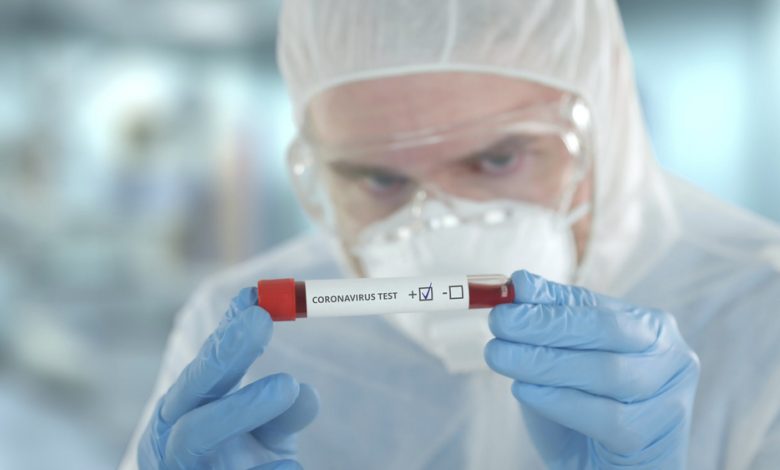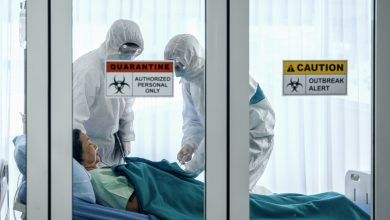
As the United States enters the sixth month of the coronavirus pandemic, many people are wondering if it’s possible to get the disease twice – if someone can be infected after recovering. There are undoubtedly several stories of this happening. WNBA player Sophie Cunningham claimed she had been infected twice, and Californian teen William Bailey was supposedly infected twice.
These stories are worrying because they could complicate the process of creating a vaccine. Double infections would also hinder efforts to develop a herd immunity where most people are immune to the virus. Herd immunity can’t exist with a virus that is capable of infecting people more than once.
Table of Contents
No Consensus in the Medical Community
For the most part, doctors are still unsure of if – and how – people get infected twice. Doctors suggest there is no real evidence of a widespread vulnerability towards double infections. They say it is difficult to know what happened to people like Bailey and Cunningham without proper medical studies and lab work. It’s possible that people could be relapsing due to some shred of the virus remaining in their body. They could also have been infected with a different virus with similar symptoms. The positive coronavirus tests for those patients could have been false positives. This idea isn’t farfetched, given how unreliable some tests are. It’s also possible that the people picked up a dead strain of the virus, which is what experts believe happened to the hundreds of people who tested positive twice in South Korea.
“You can’t extrapolate those anecdotal, first-person observations to the entire population and make sweeping conclusions about how the virus works,” said Angela Rasmussen, a virologist at Columbia University.
Doctors say that the virus hasn’t been around long enough, and there isn’t enough medical evidence to support conclusions on how people develop a coronavirus immunity, how long that immunity may last, and reasons it could be less robust for some sufferers.
Many experts said that they hoped an immunity from the initial infections this spring would last through a potential second wave and early into next year. The antibodies for MERS and SARS appear to last for up to a year, if not longer. Other coronaviruses, such as the ones behind the cold and flu, seem to work differently. People regularly catch the flu every flu season.
Experts have seen cases where antibodies for diseases don’t last as long as they should. The antibodies for chickenpox, for example, are supposed to last a lifetime. Even so, some people catch the disease again. With millions of people suffering from coronavirus, even 1% of people getting infected again could be cause for alarm. We need to know if it is possible to be reinfected, and what the reinfection rate is.
Public health officials admit there is a possibility that people could become infected again. They don’t believe there is concrete proof that this can happen and has happened, however.
“No one is yet believing in reinfection since there is no good scientific report on it,” Monica Gandhi, a professor of medicine and associate chief of infectious diseases at the University of California-San Francisco, said. “On the other hand, no one wants to dismiss the possibility.”
Medical experts are being encouraged to share their findings and case reports so that we can get a clearer picture of the potential for reinfection.
Conflicting Evidence
There have been some studies into the matter of reinfection. One British study suggests that antibodies could become useless up to three months after infection. This would be troublesome as it means that surviving coronavirus means little when it comes to being protected against the virus in the future. It could also suggest that the billions of dollars being pumped into finding a vaccine could be wasted money.
Another study was released not long after. This study was also not peer-reviewed. The study looked at 20,000 people from New York who presented mild-to-moderate symptoms of COVID=19. The participants were tested again after three months, and 120 of them displayed stable levels of virus-fighting antibodies. Researchers at Mount Sinai Health System discovered some of them had even gained more antibodies than they had at the start of the study.
The researchers speculated the test they used could be more sensitive than the ones used in other studies. They used a test authorized by the Food and Drug Administration.
Immunologists and virologists have also pointed out the immune system have several weapons to fight infection. It would be wrong to focus solely on antibodies. These blood proteins have received most of the attention because of how easy they are to measure and because they work in a simple way – preventing viruses from entering cells to rout out infections.
The body also has memory B cells, which are a kind of white blood cell. These cells create antibodies based on previous encounters with pathogens. There are also T cells to consider. T-cells orchestrate the immune response, commanding the body to develop antibodies and killing infected cells to fight away infections.
Scientists are still unsure which elements of the immune system are the most important for fighting coronavirus. It is concerning that antibody levels drop, but the evidence is still conflicting at best. Even with a decline in antibodies, this doesn’t prove that someone can catch the virus again.
What Does it all Mean?
All of this brings us back to the original question – can someone catch the coronavirus twice? The answer is we still don’t know for sure. Some people appear to have caught it twice, but there could be other explanations. Medical researchers are still unsure and continue to look into it. It is a possibility – and one that can’t be ignored – but it isn’t a definite certainty just yet. Don’t assume that you are immune because you already had the virus.





Leave a Reply
Thank you for your response.
Please verify that you are not a robot.